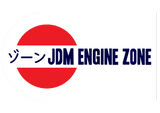Engine Reliability Check: What to Inspect
Engine Reliability Check: What to Inspect

As a car expert, I've seen a lot of car problems that could have been avoided with a little bit of preventative maintenance. One of the most important things you can do to extend the life of your car is to check your engine's reliability regularly. A reliable engine means a reliable car on the road, and no one wants to be stranded with a breakdown. In this blog post, I'm going to share with you what to inspect when checking your engine's reliability, so you can avoid costly repairs down the road.
Look for Leaks

The first thing you want to inspect when checking your engine's reliability is for leaks. Leaks can come from various sources, such as oil, coolant, power steering, and brake fluid. Look under your car for any puddles or stains on the ground. Also, lift the hood and look for any signs of coolant or oil leakage around the engine block. If you notice any leaks, it's essential to get them fixed immediately. A leak not only makes your car less reliable, but it can also cause damage to your engine.
Check the Engine Oil

The oil in your engine plays a critical role in keeping your car's engine running smoothly. Without this vital fluid, your engine can suffer significant damage. You want to ensure that the oil is at the appropriate level, and the quality is still good. You can do this by using a dipstick to check the oil level, and inspecting it for any unusual texture or color. If you notice a low oil level, or that the oil appears dirty or has a burnt smell, get an oil change as soon as possible.
Inspect Engine Hoses

Belts and hoses are an integral part of your car's engine, but they can also be prone to wear and tear. Over time, they can crack, fray, or even break, which can cause significant problems for your engine. Inspect the belts and hoses regularly to ensure they're in good condition, with no visible signs of damage. Check for cracks, frays, and any other signs of wear and tear, and replace them if necessary.
Check the Battery Condition

Your car's battery is essential to start your engine, and without it, your car won't run. If your battery is old or weak, it can cause your engine to be unreliable. You want to ensure that the battery is clean, with no corrosion around the terminals and has enough charge. You can use a voltmeter to check the battery's voltage; it should be between 12.6 to 12.8 volts. If it's lower than this or shows signs of corrosion, consider replacing the battery.
Listen to Your Car

One of the simplest ways to check your engine's reliability is to listen to your car. Strange noises or sounds can indicate a problem with your engine. Ignoring these sounds can lead to significant issues down the road. Listen for unusual noises such as grinding, rattling, or knocking, which can be a sign of a problem. Also, take note of any squeaks or hissing sounds, which can indicate a belt or hose issue.
In conclusion, inspecting your engine's reliability is an essential part of owning a car. You can avoid costly repairs and unexpected breakdowns by regularly checking for leaks, inspecting belts and hoses, checking the battery, and listening to your car. If you're unsure about what to look for or have concerns about your engine's reliability, it's always best to consult with a professional mechanic. Remember, taking care of your engine ensures a reliable car on the road and keeps you and your passengers safe.




